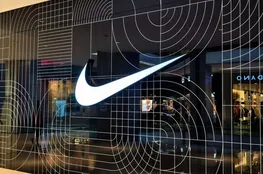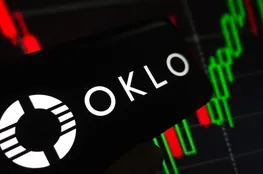Artificial intelligence has dominated the investment landscape for the past two years, with Nvidia leading the charge. The company reported triple-digit sales growth for the past five quarters, catapulting its shares more than sevenfold since January 2023. This surge has made Nvidia the best-performing stock in the S&P 500 during this period. However, artificial intelligence isn't the only investment theme attracting attention. Several billionaire hedge fund managers, including Ken Griffin of Citadel Advisors and David Shaw of D.E. Shaw & Co., sold Nvidia stock in the second quarter and opted to buy shares of the iShares Russell 2000 ETF.
This index fund tracks the small-cap Russell 2000. For example, Ken Griffin sold 9.2 million shares of Nvidia, reducing his stake by 79%, and bought 125,383 shares of the iShares Russell 2000 ETF, boosting his position by 27%. Similarly, David Shaw sold 12.1 million Nvidia shares, cutting his stake by 52%, while purchasing 638,084 shares of the iShares Russell 2000 ETF—a 169% increase. Both Griffin and Shaw manage top-performing hedge funds by net gains since inception, indicating strong investment acumen. Although neither completely exited their Nvidia positions, their substantial investments in the iShares Russell 2000 ETF suggest a bullish outlook on small-cap stocks.
Tom Lee, head of research at Fundstrat Global Advisors, shares this optimism. He told CNBC in January that the Russell 2000 could exceed 3,000 by year-end, implying a potential upside of 43% from its current level of around 2,091, benefiting shareholders of the iShares Russell 2000 ETF. The Russell 2000 index measures the performance of about 2,000 small-cap U.S. stocks, accounting for 5% of domestic equities by total value, with a median market capitalization of roughly $1 billion. In contrast, the S&P 500 is a large-cap index with a median market capitalization of $33 billion. Tom Lee's optimism is based on two factors: historically low small-cap valuations compared to large-cap stocks, and the sensitivity of small-cap companies to interest rate cuts by the Federal Reserve.
J.P. Morgan strategist Michael Cembalest recently noted that small-cap stocks are at their cheapest levels in the 21st century, though small-cap firms often have lower margins and negative earnings compared to large-cap companies. Small-cap companies rely more on floating-rate debt, meaning their interest costs will drop when the Federal Reserve reduces its benchmark rate—a move expected later this month. The iShares Russell 2000 ETF allows investors to diversify across the Russell 2000 index, spreading their capital across nearly 2,000 small-cap companies. The fund's expense ratio is a reasonable 0.19%, lower than the 2023 average of 0.36% for U.S. index funds, according to Morningstar.
Historically, the Russell 2000 has underperformed the S&P 500 over the last five, 10, and 20 years. For instance, the Russell 2000 returned 105% over the past decade, an annual compounding rate of 7.4%, whereas the S&P 500 returned 224%, compounding at 12.4% annually. For patient investors, a small position in the iShares Russell 2000 ETF could be worthwhile, especially as the Federal Reserve begins to cut rates and small-cap stocks trade at historically low valuations. However, a 43% return by year-end is unlikely. Investors should also consider balancing their portfolios with an S&P 500 index fund, as the Russell 2000 might outperform in the short term but is less likely to sustain superior performance over longer periods.
























